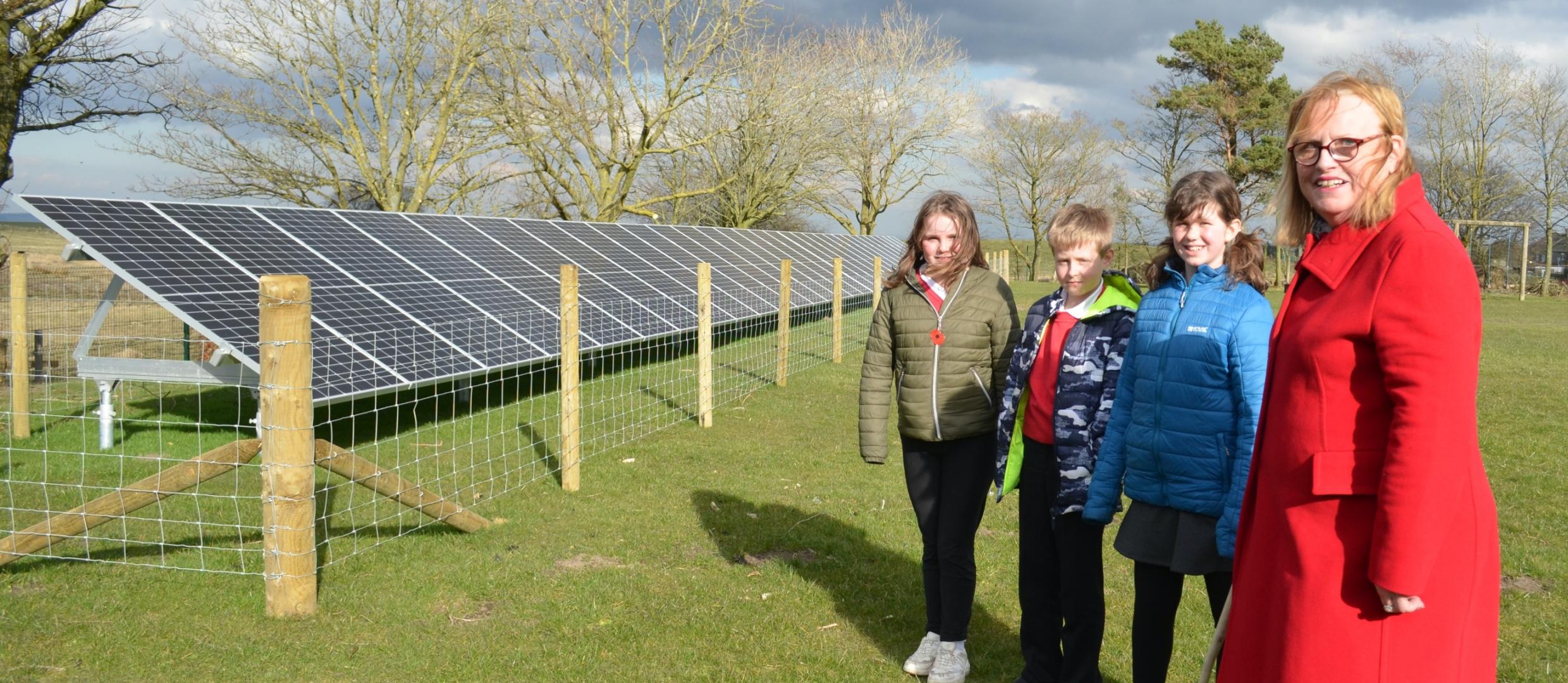A SMALL dale primary school has become the first in the county to introduce a raft of eco-friendly measures to dramatically cut the amount of carbon it produces.
As a result, Woodland Primary now generates the lowest amount of CO2 of all schools across County Durham.
Its old oil-fired boiler has been replaced by an array of solar panels while air source heat pumps have been installed and LED lights fitted throughout the school.
As a result of the £122,000 government-funded scheme, it is estimated carbon emissions have been cut from 22.1 tonnes per year to 4.9 tonnes.
The new system was unveiled last week and will continue to be closely monitored ahead of its proposed roll-out to other rural schools which rely on oil, such as Butterknowle, Middleton-in-Teesdale and Cockfield. Headteacher Clare Carr said all 25 pupils at Woodland had followed the project – even writing letters of support to Durham County Council’s planning department when officers raised objections to siting the solar panels in the school field.
“It’s been really interesting discovering what’s been involved. We are delighted that we have done it – we are already saving money,” she said. Although operating costs are expected to be about the same in the winter, officials involved in the project say summer costs will be significantly lower.
“We should save more than £1,000 per year,” added Ms Carr.
The solar array faces south-south-east to generate peak power at about 11am – just when the school’s now all-electric kitchen appliances need it most.
Four air source heat pumps have been installed in place of the old oil tank to provide heating and hot water. Demand for heat is monitored, with units only switched on as required.
In the milder months, only one of the four pumps will operate, while in winter all four will be in use.
The LED bulbs have replaced fluorescent tubes, cutting electricity consumption for lighting by two-thirds.
Cllr Mark Wilkes, cabinet member for climate change at Durham County Council, described the changes as “absolutely fantastic” .
He added: “The technology is going to help the environment, but save money. We are really ramping up on these types of schemes.”
Celia Dixon, chairwoman of the governors at Woodland Primary School, said Storm Arwen had brought into focus at a local level the importance of introducing measures to tackle climate change.
“Woodland is a special place, but sometimes, living in such a wonderful location, it is easy to forget how fragile our climate can be,” she said.
“Storm Arwen was terrifying. I lost tiles off my roof, we had two-and-a-half feet of snow and people lost power for up to seven days. Half the village also lost its water supply and there was considerable damage.
“Our children are very much aware of global warming. We collect batteries and small items of electrical equipment and we recycle within school.”
She added: “This project has been absolutely fantastic and we are delighted to be the pioneering school.
“All these measures are going to have a massive impact. Our boiler was on its last legs, so as chairwoman of governors, I want to thank the people who put our name forward.” Funding for the project was secured by the county council’s low carbon team from the Government’s public sector decarbonisation scheme. Council officials plan to use Woodland as an example of how similar schemes can be introduced across the county.
ADVERTISEMENT
Rural school becomes greenest in County Durham
ADVERTISEMENT
ADVERTISEMENT
ADVERTISEMENT






